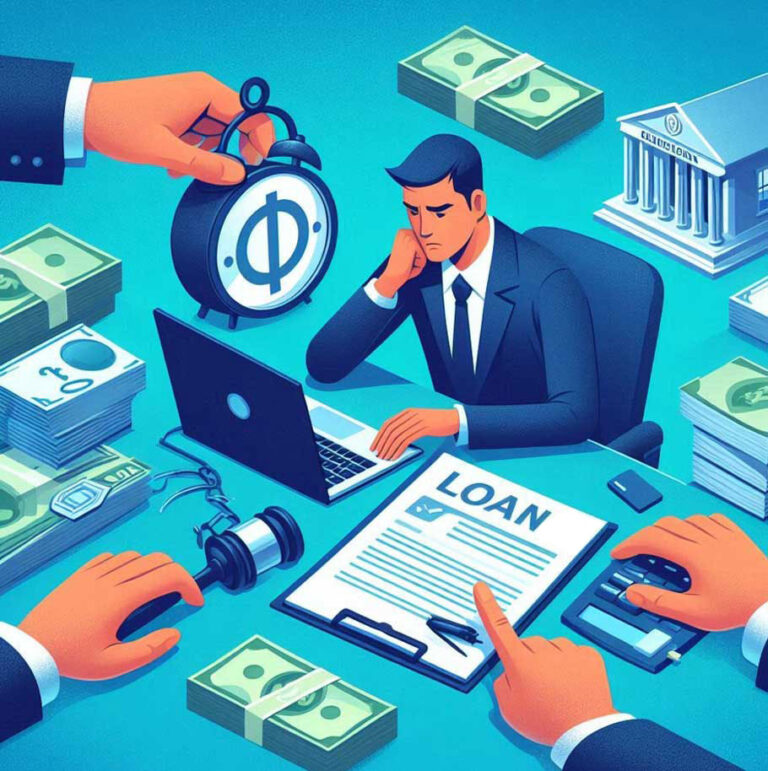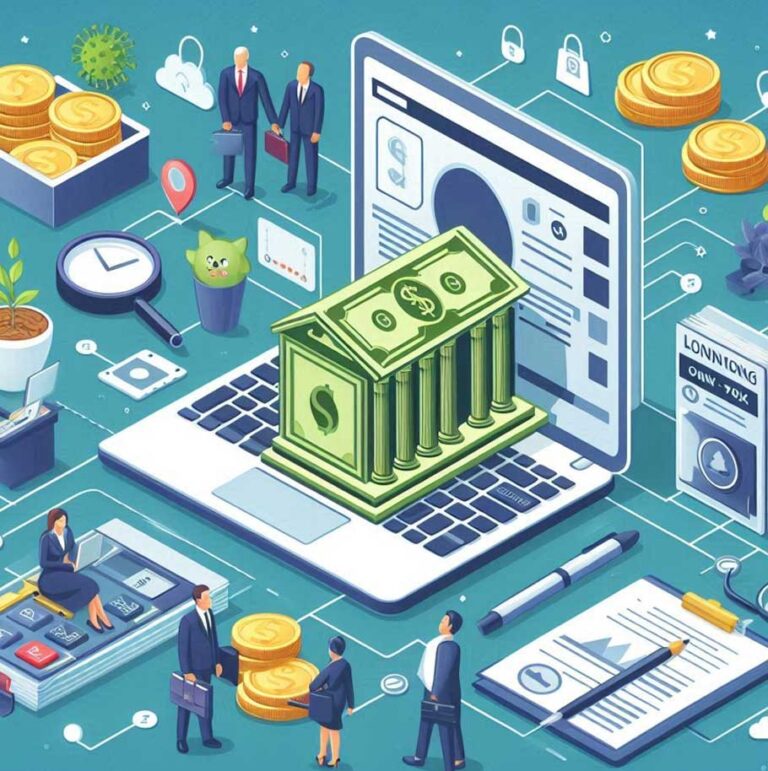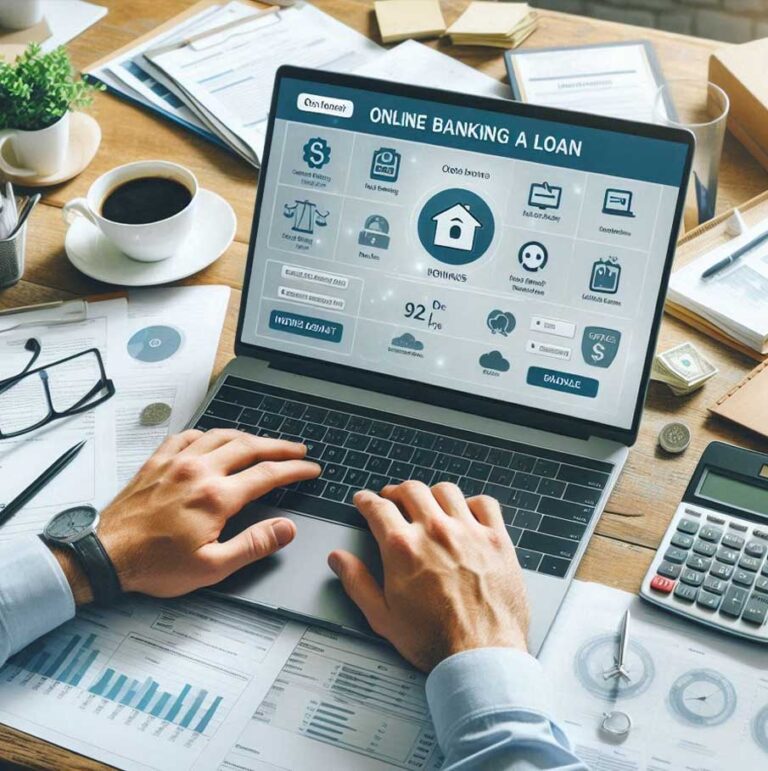Are Online Bank Loans Safe in US? What You Should Know
Introduction
In today’s digital world, online banking has become the preferred financial solution for many individuals and businesses in the US. The convenience of digital transactions, easy account access, and paperless applications have made online banks a competitive alternative to traditional banks. However, when it comes to borrowing money, a common question arises: Are online bank loans safe in the US?
With the rise of online lenders such as Ally Bank, SoFi, Marcus by Goldman Sachs, Chime, and Discover Bank, consumers must evaluate their safety and reliability. This article explores the safety of online bank loans, eligibility requirements, benefits, loan limits by county, and more.
Eligibility Requirements for Online Bank Loans
The eligibility criteria for online bank loans vary depending on the lender. However, most online banks follow a similar process for loan approval, which includes:
1. Credit Score Requirements
- Most online banks require a minimum credit score of 600-700 for loan approval.
- Some lenders, like Upstart, consider alternative credit data, such as education and employment history.
2. Income Verification
- Online banks often require proof of income through pay stubs, tax returns, or bank statements.
- Banks like SoFi offer loans based on an applicant’s earning potential rather than just their current income.
3. Employment Status
- Borrowers must typically have a stable job or reliable income source.
- Some online lenders may accept self-employed individuals with consistent earnings.
4. Debt-to-Income Ratio (DTI)
- Many online banks prefer borrowers with a DTI below 40%.
- Lower DTI increases approval chances and secures better interest rates.
5. Citizenship and Residency
- Most online banks offer loans only to U.S. citizens or permanent residents.
- Some lenders may require proof of residence in a specific state.
Benefits of Online Bank Loans
Many borrowers choose online banks for loans due to their numerous advantages. Some of the key benefits include:
1. Convenience and Accessibility
- Online loans allow borrowers to apply anytime, anywhere.
- Digital platforms like Chime and Marcus by Goldman Sachs streamline the application process.
2. Faster Loan Approval
- Traditional banks may take weeks to process loan applications, while online lenders approve loans within 24-48 hours.
- Banks like Ally Bank provide instant pre-qualification.
3. Lower Interest Rates
- Since online banks have lower overhead costs, they offer competitive interest rates.
- Discover Bank provides fixed-rate personal loans with no hidden fees.
4. Flexible Loan Terms
- Online lenders provide customizable repayment options ranging from 12 to 84 months.
- SoFi offers unemployment protection, allowing borrowers to pause payments if they lose their job.
5. No Physical Branch Visits
- Online banking eliminates the need for physical visits, making loan management hassle-free.
Loan Limits by County
The maximum loan amount that borrowers can secure from an online bank in the US depends on multiple factors, including location. Different counties may have varying loan limits due to economic conditions and cost of living. Here are some key considerations:
1. Urban vs. Rural Loan Limits
- In metropolitan areas, online banks may offer loans up to $100,000, considering higher living expenses.
- Rural borrowers might have lower loan limits due to reduced income levels and fewer financial activities.
2. State-Specific Regulations
- Some states impose limits on personal loan amounts. For example, California caps unsecured personal loans at $50,000 from certain lenders.
- Texas, on the other hand, allows larger personal loans with varying interest rates.
3. Online Banks with High Loan Limits
- SoFi: Offers loans up to $100,000 with no origination fees.
- Marcus by Goldman Sachs: Provides personal loans up to $40,000.
- Ally Bank: Offers auto and personal loans tailored to individual needs.
Are Online Bank Loans Safe in the US?
Now, let’s address the primary question: Are online bank loans safe in the US? The answer largely depends on the credibility of the lender, the security measures in place, and the borrower’s due diligence.
1. Regulatory Compliance
- Trusted online banks are insured by the FDIC and follow federal lending laws.
- Banks like Chime, Discover Bank, and Ally Bank adhere to strict financial regulations.
2. Data Encryption and Security
- Reputable online banks use 256-bit encryption to protect sensitive information.
- Multi-factor authentication (MFA) enhances account security.
3. Transparency in Loan Terms
- Reliable online banks clearly outline interest rates, fees, and repayment terms.
- Avoid lenders with vague policies or hidden charges.
4. Customer Support and Reputation
- Leading online banks have 24/7 customer support for resolving issues.
- Checking customer reviews on Trustpilot and BBB helps identify trustworthy lenders.
5. Avoiding Scams
- Be cautious of lenders that guarantee loan approval with no credit check.
- Verify licensing before providing personal information.
Conclusion
So, are online bank loans safe in the US? The short answer is yes, if you choose a reputable lender. Online banks offer convenient, fast, and competitive loan options compared to traditional banks. However, borrowers should always verify security measures, review loan terms, and ensure regulatory compliance before applying.
If you’re considering an online bank loan, institutions like SoFi, Ally Bank, Marcus by Goldman Sachs, Chime, and Discover Bank provide secure and reliable financing options. By researching and selecting a legitimate lender, you can benefit from the flexibility and affordability of online banking while ensuring your financial security.
When used wisely, online bank loans can be a powerful tool for achieving financial goals without the hassle of traditional banking.




